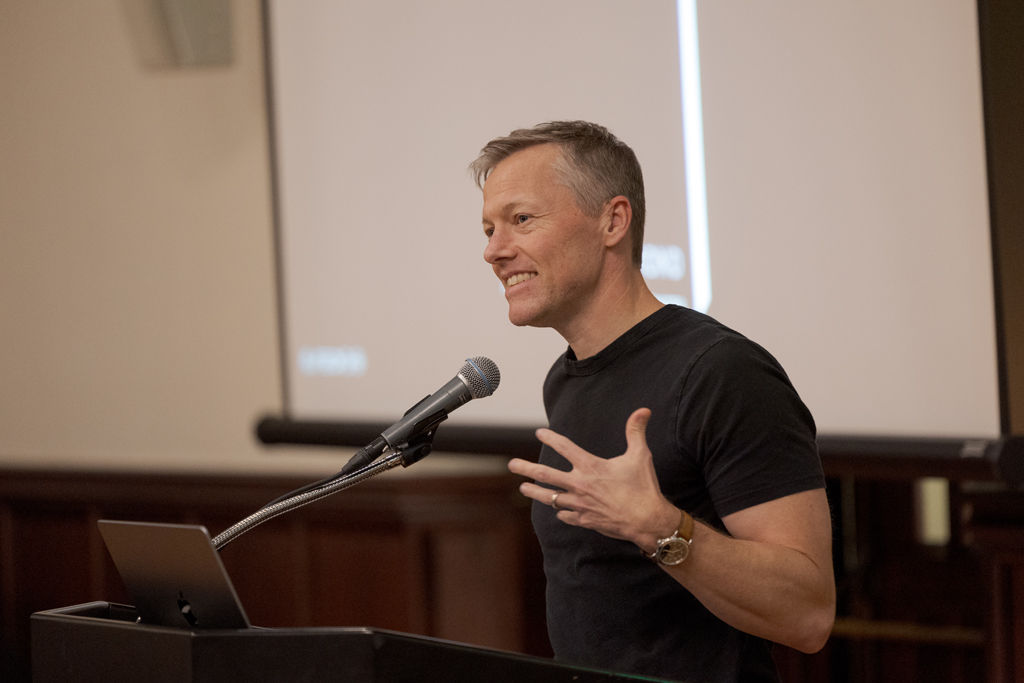Poverty, By America
Matthew Desmond’s experiences growing up in poverty prompted him to take a stand as a poverty abolitionist. “Ending poverty is gonna require new policies and new political movements, but it also will require that each one of us, in our own way, becomes poverty abolitionists,” said Desmond, a professor of sociology at Princeton University.
Poverty, By America is Desmond's latest book. A Pulitzer Prize–winning author, he said watching his family get evicted from their home motivated him to ask why the United States deals with poverty the way it does. “I think seeing my family pressed and stressed by poverty drove this question inside of me, which is ‘Why?’ Desmond said. Why is this how we deal with a family when they fall on hard times? Why so much poverty in this land of abundance?
Desmond set out to answer this question by speaking to union representatives, government officials, and people below the poverty line. He discovered a troubling fact: 38 million people are officially poor in the United States—a number larger than the population of Australia—and the problem is getting worse.
“Since the turn of the century, eviction filings have increased 22 percent,” Desmond said. “The share of families visiting food pantries has increased by 19 percent. The inflation-adjusted debt held by low-income families has increased by 200 percent since the 1990s.”
Desmond said it is important to realize that a fair amount of government aid does not reach the poor. For example, when Americans apply for disability benefits, they have to spend a portion of what they would receive on legal fees. “In 2019, right before COVID struck, 1.2 billion dollars with a ‘B’ was issued to attorneys representing people applying for disability,” Desmond said. “I can’t get over the fact that each year we spend over a billion dollars in Social Security funds—not on getting people disability, but getting people lawyers so they can get on disability.”
Desmond said the job market is also a cause of high poverty levels. He said people are overworked and underpaid, but this was not always true: “During the 1950s and 1960s, a third of the American workforce belonged to a union. CEO pay was reigned in, worker pay climbed, and the country experienced the most economically equitable period in modern history. But as worker power waned, American jobs got a lot worse. Our grandparents had careers and our parents had jobs, and we completed tasks.”
Desmond said the job market is not the only place that poor Americans are exploited—they are also exploited in the financial markets: “Every year, poor Americans pay over 11 billion dollars in overdraft fees, 1.6 billion dollars in check-cashing fees, and almost 10 billion dollars in payday loan fees. That’s 61 million dollars pulled out of the pockets of the poor in fines and fees alone every single day.”
Desmond said that the poor also struggle because the United States gives the most to people who do not need it: “Every year, the average family in the bottom 20 percent of the income distribution, our poorest families, get about $26,000 a year from the government. But the average family in the top 20 percent, our richest families, they get about $35,000 a year from the government. That’s almost a 40 percent difference.”
To solve the problem of poverty in the United States, Desmond said the government needs to do three things: invest in families by rebalancing the safety net, empower the poor by reigning in exploitation, and build inclusive and open communities. He concluded that Americans must reject the idea that poverty is inevitable and should fight to end poverty completely.
“I want to end poverty in America,” Desmond said. “I want to end it. Why settle for anything less?”
Adapted from the Heights article by Aidan Gravina '27
Presented with Lowell Humanities Series and the PULSE Program.




